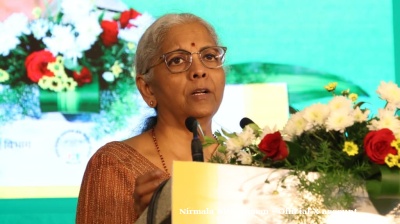How many people really perished in the “disaster of the century” earthquake catastrophe that struck southeastern Turkey and northern Syria exactly one year ago today (February 6)?
Officially, the calamity—the huge death toll of which is frequently attributed by critics to officials who customarily waved through non-quake-proofed housing in a known earthquake zone—took the lives of around 51,000 across 11 Turkish provinces. However, there are still multiple reports of people convinced that there are great numbers of missing inhabitants still buried in the rubble.
One difficulty is that Turkey has set up no central depository for data on the “Kahramanmaras” earthquake disaster, and matters took a curious turn lately when Murat Kurum, the AKP ruling party’s Istanbul candidate for the upcoming March mayoral elections and the Turkish environment minister between 2018 and 2023, stated on television that 130,000 people died in the disaster.
The quote was picked up by local media and opposition parties wasted no time in leaping into the picture to criticise the state for what they claimed was a cover-up of the actual death toll. Kurum later said that the number he mentioned was not actually in reference to the February 6 earthquake, something the host of the TV programme he appeared on also tried to clear up after the broadcast. The figure cited, Kurum claimed, was the total number of deaths the country has experienced in all earthquakes experienced to date.
Among those who did not see this explanation as satisfactory was journalist Bulent Mumay who noted that the total number of deaths in earthquakes in Turkish history was estimated by some to be 106,000, while others refer to a figure of more than 150,000. The way Kurum worded his sentence and the context indicated that he was indeed referring to the death toll in the Kahramanmaras disaster, claimed Mumay and many other observers.
One thing for sure is that on the first anniversary of the great tragedy, huge numbers of people who lost their homes are still living in sprawling “container cities”.
In the aftermath of the disaster, President Recep Tayyip Erdogan, aware he faced national elections within a couple of months, pledged his government would “heal the wounds of the earthquake to a great extent within a year”.
Erdogan went on to pledge 319,000 new homes by February 2024 and a total of 680,000 by 2025. But, according to the Environment and Urbanisation Ministry, only 46,000 homes have been finalised so far, leaving many earthquake survivors stuck in temporary shelters, containers and tents.
Among organisations using the anniversary to remind people of the “deadly construction” that exposed so many people to the loss of their lives and homes in the first place is Human Rights Watch (HRW).
On February 2, the New York-based international rights group called on the the Turkish government to meet its obligation to ensure that the public officials responsible for the thousands of defective buildings that collapsed in the earthquakes are held accountable.
Trials of real estate developers, building controllers and technical personnel have opened in recent months, “but not a single public official, elected mayor or city council member has yet faced trial for their role in approving numerous construction projects that fell far short of safe building standards or for failing to take measures to protect people living in buildings known to have structural problems in a region with a high risk of seismic activity,” said HRW.
“On the anniversary of the devastating February 6, 2023 earthquakes, the Erdogan government should focus not just on rebuilding, but on ensuring that those who authorized and built homes, hospitals, and hotels that turned to graves when quakes struck are held to account,” said Hugh Williamson, Europe and Central Asia director at Human Rights Watch. “No construction work can happen without the authorization of municipal and provincial authorities, so their officials should be investigated and held to account.”
“Türkiye has a shocking history of impunity for both private actors and public officials when it comes to preventable deaths in earthquakes, and this needs to change,” Williamson added. “Families have been traumatized by the loss of loved ones and no court decision will bring back the dead, but at the very least they deserve to see all those responsible held to account as well as other steps taken to protect lives in the future.”
News

Trump authorises CIA covert operations in Venezuela to topple Maduro
The White House has acknowledged granting the Central Intelligence Agency sweeping powers to conduct covert operations aimed at unseating President Nicolás Maduro, the NYT reported.

India’s finance minister to miss upcoming IMF and World Bank meetings
India’s Finance Minister Nirmala Sitharaman will not attend this week’s annual meetings of the International Monetary Fund and World Bank in Washington, as trade negotiations between New Delhi and Washington remain unresolved.

Young Ukrainians asylum seekers fleeing the war for Germany surges
The number of young Ukrainian fleeing the war and seeking asylum in Germany has surged, following Ukraine’s decision to partially lift its travel ban for men aged 18 to 22, according to figures from the German Interior Ministry.

US may double support for Argentina to $40bn conditional on policy reforms
Washington buys Argentine pesos and mulls creating a new private sector-led $20bn debt facility, which would bring total support to $40bn with the existing swap line, Treasury Secretary Bessent said.

_1.jpg)


